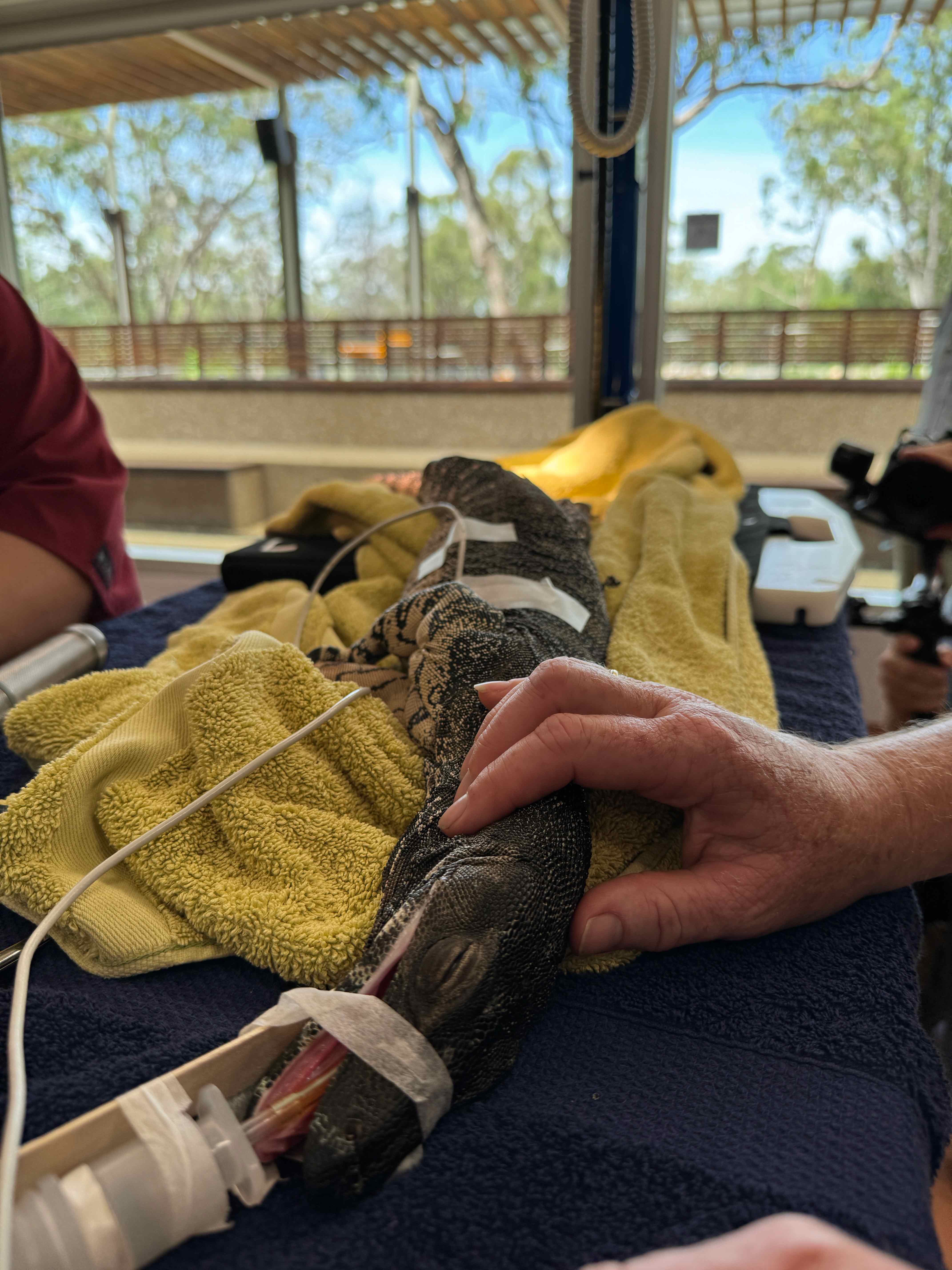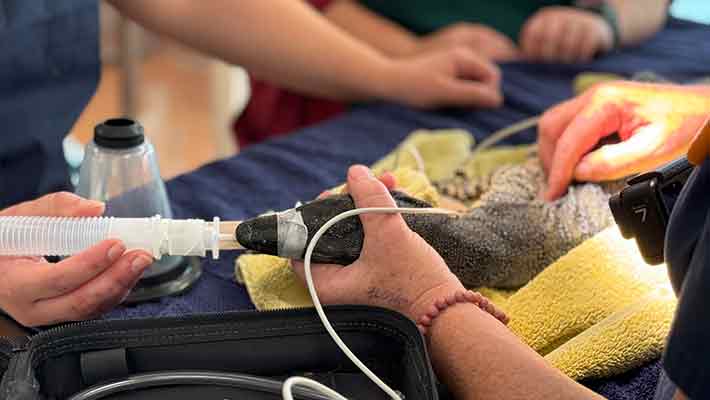Posted on 08th April 2024 by Media Relations
Lace monitor safely returned home
An ill and injured Lace Monitor has been safely returned home after a 6-week stint at the Wildlife Hospital at Taronga Western Plains Zoo.
Also known as a Tree Goanna, the monitor was spotted by a passing motorist on the side of the road near Parkes, rescued by a local WIRES Wildlife carer and brought to the Wildlife Hospital.
Veterinary officer Dr Jelena Vukcevic said the team initially suspected the monitor had been hit by a vehicle, but they quickly found there was something else going on.

“We did an initial triage which involved some conscious x-rays, as well as taking some blood, just to make sure that there were no obvious fractures or really nasty things that needed to be managed straight away that would affect his prognosis,” Dr Vukcevic said.
“On those bloods we actually found that being hit by the car was probably the least of this animal’s worries. His white cell count was absolutely through the roof, in line with a serious infection or septicaemia.”
The Lace Monitor was put on two antibiotics and a strong anti-inflammatory drug, and after a few weeks he was well enough to undergo a full examination under anaesthetic. He had no fractures or any other serious injuries.
He responded well to the treatment, and two weeks later he was well enough to graduate to a pre-release enclosure; a big aviary where he could work on his climbing fitness.


Once satisfied that the infection had resolved and the monitor was able to climb, the team transported him back down to Parkes. His WIRES rescuer was on hand to return him to the wild – although the monitor didn’t seem to be in any rush.
After taking stock of his surroundings for a few minutes, the Lace Monitor darted up a nearby tree.
“That’s exactly what we wanted him to do and it just reinforced that it was absolutely the best decision for him,” Dr Vukcevic said.
But not every case brought into the Wildlife Hospital has such a happy ending, and Dr Vukcevic is urging motorists to watch out for wildlife these school holidays.
“I think this case is a pretty important reminder that we share our roads with wildlife, so to anyone who is driving, especially country roads and especially at night, just be really careful and watch out for wildlife that might be crossing,” she said.
“They don’t have any road sense like we do, so just taking extra care and slowing down, especially when the conditions are a bit rainy or slippery, it’s safer for us and them.
“If you do find injured wildlife by the side of the road, the best thing to do is to contact your local wildlife rescue organisation and they can advise you on the best way to help that animal.”